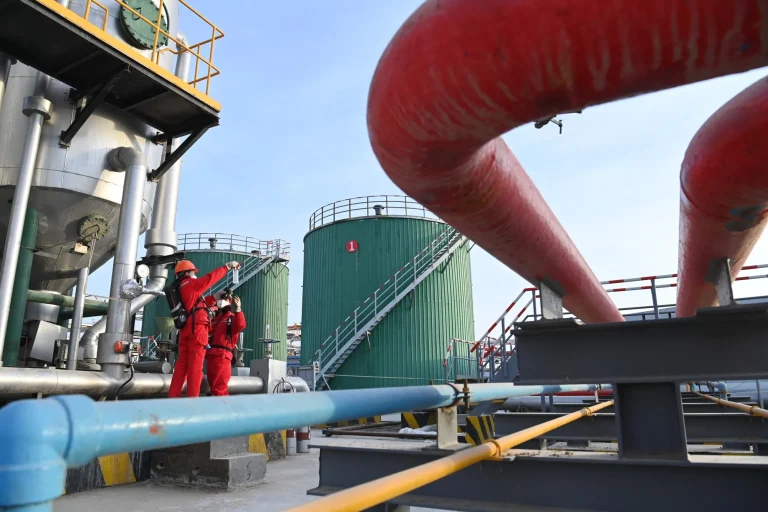🎧 Listen to This Article
Independent “teapot” refiners in China are bracing for a fresh hit to profits following new government rules aimed at curbing untaxed refined oil, analysts say. The sector, already grappling with sluggish fuel demand and overcapacity, is expected to face heightened financial pressure.
Under the revised regulations, refiners must now pay consumption taxes both on imported feedstock and on the refined products they produce. Historically, evasion has been widespread: research cited by state oil giant Sinopec and consultancy GL Consulting estimates that 30–40% of gasoline and diesel is sold without taxes.
Digital Reporting Replaces Paper Ledgers
The Ministry of Commerce has scrapped paper-based reporting, requiring refiners, petrol stations, and other operators to submit monthly online records of purchases, sales, and inventories. The changes, flagged by the State Council in February, aim to boost tax revenue, eliminate illegal petroleum products, and reduce overcapacity.
“The regulation is a vital component of the broader ‘anti-involution’ governance push for a refining sector experiencing low-price competition,” said Dongyuan Cao, associate law professor at the University of Science and Technology Beijing. In China, “involution” describes destructive internal competition.
Small Players Hit Hardest
Smaller teapot refiners, which have historically relied on partial tax evasion to maintain margins amid falling demand, are expected to be most affected. Industry experts predict that some could begin operating at a loss under the new system.
“For diesel, skirting the consumption tax could previously lift margins by about 600 yuan ($84) per ton; for gasoline, the benefit was roughly 1,900–2,000 yuan per ton,” noted industry insiders.
The crackdown is part of a long-term strategy: prior campaigns in Shandong province temporarily curbed evasion, but compliance often lapsed after inspections ended. The new approach introduces a systematic, continuous reporting mechanism, increasing the likelihood of sustained enforcement.
Sinopec researcher Qi Mengdi noted in Petroleum Business News that the reforms also dovetail with Beijing’s broader objective of consolidating the refining sector, reducing overcapacity, and supporting state-owned enterprises that operate in full compliance.
With the sector operating at less than half capacity in the first half of 2025 and the adoption of electric vehicles dampening fuel demand, analysts expect smaller teapots to face a challenging year ahead.
For any questions, clarifications, feedback, or contributions regarding this article, please contact us at editorial@tax.news. We welcome your input and are dedicated to delivering accurate, timely, and insightful tax news. All inquiries will be handled confidentially in accordance with our privacy policy.



